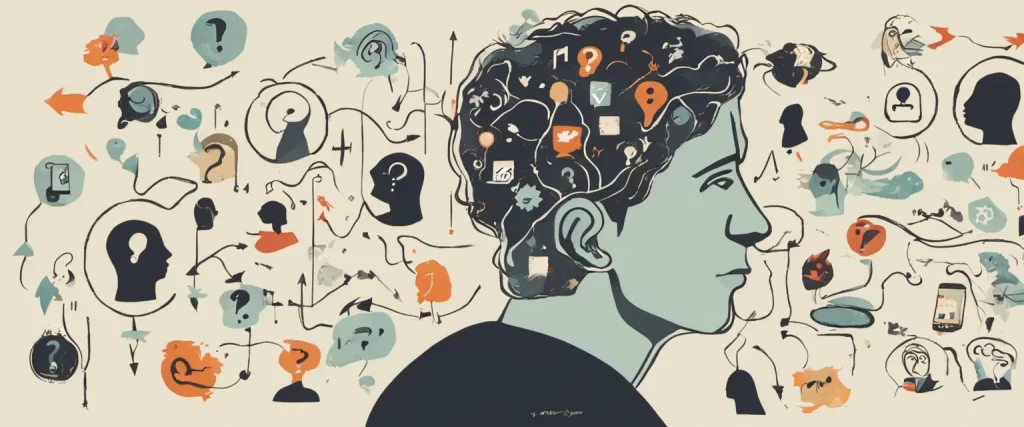Enhance Emotional Intelligence with Goleman’s Classic Book

Emotional Intelligence, a term first coined by renowned psychologist Daniel Goleman, has become an integral and influential concept in today’s society. As our understanding of human behavior deepens, we begin to recognize that intelligence isn’t solely measured by academic achievements or intellectual prowess. Instead, Goleman argues that emotional intelligence, the ability to understand and manage one’s own emotions and effectively navigate social interactions, is a vital factor in achieving success and overall well-being. Exploring the profound insights presented in Goleman’s groundbreaking book “Emotional Intelligence,” this article delves into the significance of emotional intelligence in various aspects of our lives, revealing its transformative power in personal relationships, professional endeavors, and overall lifelong fulfillment.
What is Emotional Intelligence
Emotional intelligence, often referred to as EQ, is the ability to recognize, understand, and manage your own emotions, as well as the emotions of others. It involves being aware of and controlling your emotions effectively in different situations, being able to empathize and understand others’ emotions, and using this understanding to build strong relationships and make informed decisions.
Emotional intelligence is made up of several components, including:
1. Self-awareness: This is the ability to recognize and understand your own emotions, strengths, weaknesses, and values. It involves accurately assessing your emotions and their impact on your thoughts and behaviors.
2. Self-regulation: This is the ability to control and manage your emotions effectively. It includes being able to regulate impulses, adapt to change, and handle stress in a positive way. Self-regulation also involves being trustworthy, responsible, and maintaining high ethical standards.
3. Motivation: This component relates to the ability to set and achieve goals, work towards self-improvement, and have a passion for what you do. It involves being driven by intrinsic motivation, rather than solely relying on external rewards.
4. Empathy: Empathy is the capacity to understand and relate to the emotions, experiences, and perspectives of others. It involves being able to put yourself in someone else’s shoes and respond compassionately and appropriately.
5. Social skills: This component encompasses the ability to build and maintain healthy relationships, communicate effectively, and work well in teams. It involves being able to resolve conflicts, influence others, and display leadership qualities.
Research has shown that emotional intelligence plays a vital role in various aspects of life, including personal relationships, leadership effectiveness, and overall well-being. It can be developed and improved through self-reflection, practice, and seeking feedback from others.
Why is Emotional Intelligence Important to Us?
Emotional intelligence is important to us for several reasons:
1. Better interpersonal relationships: Emotional intelligence helps us understand and manage our own emotions as well as empathize with others. It enables us to navigate relationships more effectively, resolve conflicts, and build deeper connections with others.
2. Improved mental health: Emotional intelligence allows us to recognize and regulate our emotions, which can contribute to better mental health. It helps us understand and cope with stress, anxiety, and other negative emotions, leading to improved overall well-being.
3. Enhanced decision-making: Emotional intelligence helps us make rational, balanced decisions by considering both our emotions and logic. It enables us to think strategically and consider the impact of our decisions on ourselves and others, leading to better outcomes.
4. Effective leadership: Emotional intelligence is especially crucial for leaders. Leaders with high emotional intelligence can inspire and motivate their teams, understand their concerns, and effectively communicate and collaborate. It also enables them to navigate challenging situations, manage conflicts, and make fair and inclusive decisions.
5. Increased resilience: Emotional intelligence plays a significant role in building resilience. It helps us bounce back from setbacks, cope with failures, and adapt to changes more effectively. With emotional intelligence, we can develop a positive mindset, maintain optimism, and effectively manage stress and adversity.
Overall, emotional intelligence is essential for personal and professional success, healthy relationships, and overall well-being. It enhances our ability to understand and manage emotions, both in ourselves and in others, leading to more fulfilling and rewarding lives.
Unlocking Emotional Intelligence from Emotional Intelligence

Emotional Intelligence Introduction
Emotional Intelligence” by Daniel Goleman is a groundbreaking book that explores the significance of emotional intelligence and its impact on various aspects of life. The book argues that emotional intelligence can be more important than traditional intelligence in determining success and happiness. Goleman defines emotional intelligence as the ability to recognize, understand, manage, and express our emotions effectively, as well as the ability to recognize and understand the emotions of others.
The book delves into the science behind emotional intelligence, explaining its neurological basis and how it develops throughout life. Goleman also examines the various components of emotional intelligence, including self-awareness, self-regulation, motivation, empathy, and social skills. He provides case studies and research findings to support his arguments and demonstrate how emotional intelligence affects relationships, parenting, education, and work performance.
One of the key concepts discussed in the book is the impact of emotional intelligence on leadership. Goleman argues that effective leaders possess high emotional intelligence, as they can manage their own emotions and inspire and motivate others. He presents strategies for developing emotional intelligence in the workplace and offers insights into how organizations can foster an emotionally intelligent culture.
Overall, “Emotional Intelligence” is a thought-provoking book that highlights the significance of emotional intelligence in all aspects of life. It provides practical guidance on how to develop and enhance emotional intelligence and offers a fresh perspective on the crucial role emotions play in our personal and professional success.
Emotional Intelligence Methods
The book “Emotional Intelligence” by Daniel Goleman explores various methods and practices to enhance emotional intelligence. Some of the key methods mentioned in the book include:
1. Self-awareness: The ability to recognize and understand one’s own emotions, strengths, weaknesses, and triggers is essential for enhancing emotional intelligence. This can be developed through mindfulness, self-reflection, and journaling.
2. Self-regulation: The ability to control and manage one’s emotions, impulses, and reactions. This involves practicing self-control, delaying gratification, and maintaining emotional balance. Techniques like deep breathing, meditation, and stress management can aid in developing self-regulation skills.
3. Empathy: The capacity to understand and relate to others’ emotions, perspectives, and experiences. Empathy can be developed through active listening, putting oneself in others’ shoes, seeking to understand different viewpoints, and showing genuine interest in others.
4. Social skills: Building and maintaining healthy relationships, effective communication, collaboration, and conflict resolution are crucial social skills. Developing active listening, assertiveness, negotiation, and networking abilities can improve social skills.
5. Motivation: The drive to achieve goals, continuously improve, and persevere in the face of obstacles. Developing intrinsic motivation, setting meaningful goals, finding purpose, and cultivating a growth mindset are crucial for enhancing motivation.
6. Emotional self-awareness: The ability to accurately identify and understand one’s own emotions in the moment. This involves acknowledging and accepting one’s feelings and being able to articulate them.
Overall, developing emotional intelligence involves a combination of self-reflection, mindfulness, empathy, social skills, and motivation. Goleman emphasizes the importance of regular practice and continuous self-improvement in these areas to enhance emotional intelligence.
Emotional Intelligence Quotes
Emotional Intelligence quotes as follows:
1. “Self-awareness is the ability to monitor our emotions and thoughts from moment to moment.”
2. “People who cannot marshal some control over their emotional life fight inner battles that sabotage their ability for focused work and clear thought.”
3. “The emotional brain responds to an event more quickly than the thinking brain.”
4. “Emotional intelligence begins to develop in the earliest years. All the small exchanges children have with their parents, teachers, and with each other carry emotional messages.”
5. “People do their best work when they feel a sense of meaning and purpose in what they do.”
6. “The phrase ’emotional intelligence’ (EQ) was coined by researchers who found that while traditional intelligence (IQ) could account for only 20% of the factors leading to a person’s success, EQ could account for the remaining 80%.”
7. “Emotional intelligence can be nurtured and strengthened throughout life.”
8. “The most effective leaders are all alike in one crucial way: they all have a high degree of what has come to be known as emotional intelligence.”
9. “Emotional intelligence is not just about managing your own emotions, but also about being able to recognize and respond effectively to the emotions of others.”
10. “In a very real sense, we have two minds: one that thinks and one that feels.”

More Books About Emotional Intelligence
Title: Exploring Emotional Intelligence: A Diverse Collection of Books
1. The Dance of Anger: A Woman’s Guide to Changing the Patterns of Intimate Relationships” by Harriet Lerner:
Harriet Lerner’s insightful book explores the concept of anger and how it affects our relationships. Through this guide, readers learn to harness their anger constructively by promoting self-awareness and effective communication.
2. Your Erroneous Zones” by Wayne Dyer:
Wayne Dyer’s classic book focuses on understanding and transcending negative emotions. It delves into the belief systems that contribute to emotional distress, providing practical techniques to improve self-esteem, self-worth, and personal satisfaction.
3. The Conscious Parent: Transforming Ourselves, Empowering Our Children” by Shefali Tsabary:
In this illuminating book, Shefali Tsabary explores the essential role of emotional intelligence in parenting. It highlights the significance of self-awareness, empathy, and conscious communication to forge stronger connections and create emotionally healthy children.
4. “Radical Acceptance: Embracing Your Life With the Heart of a Buddha” by Tara Brach:
Tara Brach presents a compassionate guide to embracing emotional pain and cultivating self-compassion. This book offers valuable insights and practical meditative practices to develop emotional intelligence, allowing readers to accept themselves and others with kindness and understanding.
5. “Emotional Agility: Get Unstuck, Embrace Change, and Thrive in Work and Life” by Susan David:
In “Emotional Agility,” Susan David emphasizes the importance of flexibility and adaptability in managing emotions. Through personal anecdotes and scientific research, David provides strategies for confronting challenges, expanding emotional awareness, and developing resilience.
By reading this diverse selection of books, you’ll gain a multifaceted understanding of emotional intelligence. Each book offers unique perspectives, practical exercises, and transformative insights that will empower you to navigate emotions better, enhance communication, and foster meaningful connections in various aspects of life.



1 Comment
Transforming Your Communication Skills with 'Influencer' by Joseph Grenny - singleread.com · 12/07/2023 at 17:21
[…] interpretation of the message by the recipient. Communication can occur in various forms, such as interpersonal communication, group communication, mass communication, and digital communication. It plays a crucial role in […]